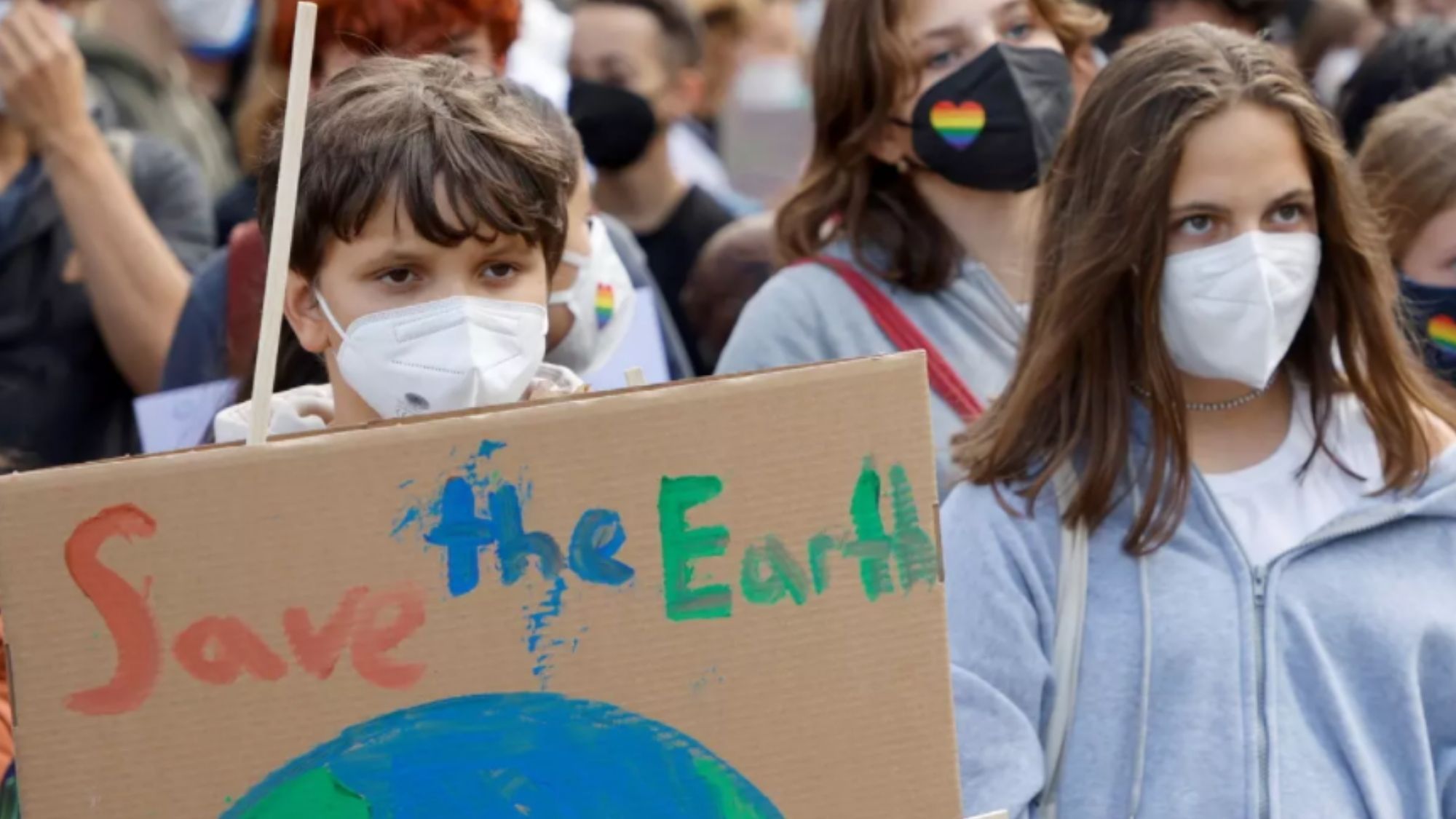A recent study released by Climate Reality Project of former US VP Al Gore showed that the youth are fearful they would not enjoy the opportunities their parents had and are also anxious about having families because of climate change.
As leaders of advanced and laggard economies meet (virtually and physically) in Glasgow, Scotland beginning October 31 for the UN Climate Change Conference or COP26, the youth have voiced anxieties about their future and how little governments have been working to address their concerns.
A study released by the Philippine chapter of the Climate Reality Project of former US Vice President Al Gore, it was shown that 80 percent of young people around the world are extremely worried about climate change and how it would impact their future and generations after them.
Governments must listen to the youth, the project stressed.
“Forty-five percent globally reported that their feelings toward the prevailing climate crisis are having negative impacts on daily functioning, which include eating, concentrating on work and school, sleeping, spending time in nature, playing, having fun and dealing with relationships,” the Climate Reality Project Philippines said.
Worrying levels
“In the Philippines, this number went up to a worrying 75 percent, with the report recognizing that young people in the global south are experiencing more severe climate anxiety, which is defined by the American Psychiatric Association as a chronic fear of environmental doom,” the group added.
These figures were shared by Caroline Hickman, a psychotherapist and teaching fellow at the University of Bath in the United Kingdom, during the 18th episode of The Climate Reality Project Philippines’ Klimatotohanan webcast series.
Hickman co- authored the study entitled “Young People’s Voices on Climate Anxiety, Government Betrayal and Moral Injury: A Global Phenomenon.”
She also serves in the board of the Climate Psychological Alliance, a non-profit organization that aims to address the psychological dimensions of the climate and ecological crisis.
The study, which had been posted on Facebook, has been released on a pre-publication basis by the scientific journal Lancet Planetary Health while it is undergoing peer review.
It was the first large-scale investigation of climate anxiety in children and young people globally and its relationship to government response.
The group surveyed 10,000 children and young people, aged 16 to 25 years from Australia, Brazil, Finland, France, India, Nigeria, the Philippines, Portugal, UK and USA.
The group noted that the results of the survey among the Filipino youth are sobering.
Youth won’t enjoy opportunities their parents had
“Seventy-one percent of the respondents think that they won’t have access to the same opportunities that their parents had. Seventy-seven percent think that their family’s economic, social, and physical security will be threatened. Forty-seven percent are hesitant to have children because of climate change,” Hickman said.
She said that climate anxiety is not a mental illness.
“But if we put together the realities of climate change with climate anxiety and global inadequate action, what we are looking at are chronic, inescapable stressors that will inevitably impact the mental health of children and young people.”
Hickman explained that climate anxiety is inextricably linked to the failure of those in power to act decisively and sufficiently to address the prevailing climate crisis.
To understand the correlation between climate anxiety and actions or inactions of governments around the world, Hickman said they asked respondents what they think of the response of the governments (globally, not just their own governments) to the prevailing climate crisis.
In the Philippines, 68 percent of those surveyed thinks that governments are failing young people; 69 percent thinks that governments are lying about the impact of their actions; and 56 percent thinks that governments are betraying them and future generations.
“We need to acknowledge the concurrent mental health distress that this [climate crisis] is causing. We need to be clear that unless we take global action, we are leaving young people in the most vulnerable countries in the world feeling distressed and feeling abandoned and betrayed,” she added.
Systemic solutions needed
Jon Bonifacio, Education Coordinator of the Youth Advocates for Climate Action Philippines, noted that while individual actions matter, there is a need to clamor collectively for systemic solutions to the climate problem.
“The primary solution [to the climate crisis] really is to find ways to address it to change current conditions. And the best way to do that is to do it together and collectively,” he said.
Hickman agreed, warning young climate advocates not to fall into “the binary of either naïve optimism or apocalyptic thinking.
“We have to take care of ourselves in whatever form of activism we’re engaging in. Any internal activism needs to be balanced with external activism. Otherwise, it’s a really high risk that we’ll just burn out,” she added.
She also advised authorities against dismissing climate anxiety.
“We’re causing moral injury if we disregard these figures,” she said, adding that young people must be listened to, understood, and taken seriously.
“If we can do that seriously and properly, then young people can be reassured, protected, valued, and hopeful,” she added.
Tags: #youth, #climatechange, #climateanxiety, #COP26
